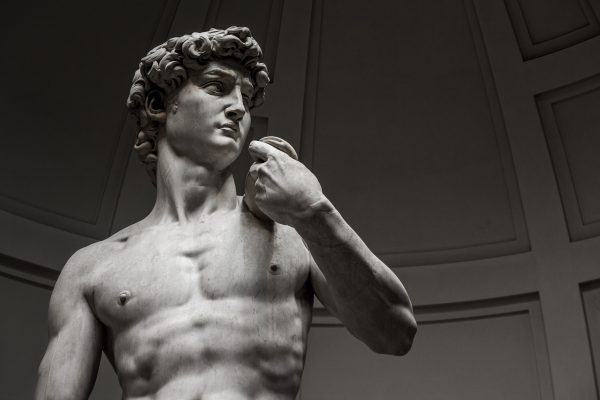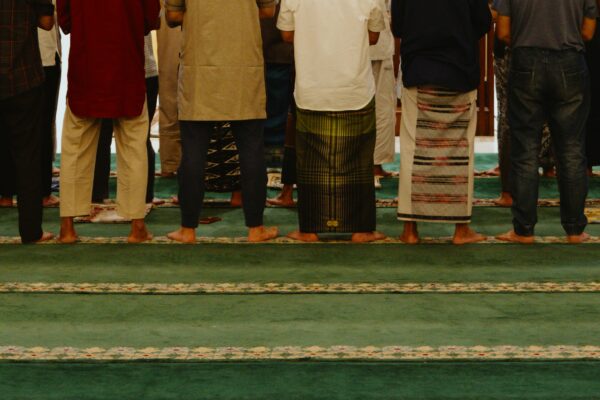This series of articles aims to re-evaluate certain fundamental principle of social behaviour…
As I came out of an uplifting annual Islamic conference on a fine summer bank holiday, I saw a sister standing by the bookstore, with her hijab being somewhat far from what even lexicographers would call ‘hijab.’ Feeling all motivated to strive to help achieve an Islamic community built on strong values and principles, I approached the sister in question with a smile and a chocolate chip muffin – our centre likes to serve yummy snacks after their program – and after a cheerful salaam and chit chat, I said to her: “Can I advise you on hijab and what Islam says about our dress code?”
Her reply took me by surprise at first, but I reminded myself that our society has built an ideology, through years of unconscious messages and influences from western culture and her reaction was just a manifestation of this. I knew living in the West comes with a new outlook on life, which often goes against fundamental principles of Islam, or rather any of the Abrahamic faiths, but until you come across a blunt manifestation of it, one wouldn’t realise how badly our society is moving away from the path of the righteous.
Her reply was, “How I dress has nothing to do with you and no one has given you the right to preach to me!” Worse than the harshness of the words was her politeness, smile and confidence with which she uttered those lines.
I let her enjoy her muffin in solitude and walked on, deep in thought:
Doesn’t the Lord, in the Quran, say:
وَ الْمُؤْمِنُونَ وَ الْمُؤْمِناتُ بَعْضُهُمْ أَوْلِياءُ بَعْض
“The believing men and the believing women, are awliyah of one another.”
In other words, it is Allah (swt) that has given this right to the believers that they have authority over each other?
Authority in what area, I wondered. The verse carries on:
ٍ يَأْمُرُونَ بِالْمَعْرُوفِ وَ يَنْهَوْنَ عَنِ الْمُنْكَر
“They enjoin the good and forbid the evil.”
I believed that my act was justified; it is Allah (swt) that has given me this right and authority over other Muslim brothers and sisters to advise them what is right and prevent them from doing wrong.
It is unfortunate that the Western culture has brainwashed us with an attitude of “live and let live.” We pride ourselves as a culture to be forerunners in upholding this idiom and consider it as part of human rights, to let others do as they please. Perhaps it is time we place this ‘value’ under the Islamic microscope and realise its lethal effect for any society.
The reaction of disgust to sin is somewhat absent from our society, and I am as guilty as anyone else. There seems to be this inner voice in us that tells us that, ‘it has nothing to do with me if he or she does a certain thing, eats a certain food or dresses a certain way.’ Hasn’t God created us free to use our freewill and therefore we shouldn’t interfere in other people’s choice – even though it leads them to eternal punishment and prevents them from reaching perfection and happiness, in addition to affecting the spiritual growth of the society as a whole?
This perception is indeed satanic. If we were to look at what Islam says about the way society is to work…
I didn’t get a chance to finish my thought. There was a police officer by my car, gently placing a parking fine on my windscreen.
I was about to lash out at him with, “who gives you the right to…” but stopped myself. They say everything that happens in this universe does so to teach you about Allah (swt). The police officer was teaching me something, despite not coming with a chocolate chip muffin.
I instead smiled at him.
“The event I was attending was a bit long and I’ve gone over my 2 hour limit I think.” He didn’t say anything, oblivious of the fact that in addition to a £60 fine, he had granted me some fine moral lessons. He moved on to the next car.
Nobody asks the ticket officer, “who gave you the right to fine me,” since it’s simply taken for granted that the society as a whole has given certain people the right to act in certain way that causes financial loss to others, albeit with a particular goal in mind: the establishment of structure, security and opportunity of growth in society.
Neither does anyone say, “but I’m free to park wherever I want, it’s got nothing to do with you, who are you to impose your opinions on parking spots?” If we were to work with such a mentality, it would be hard to get to work or perform any day to day worldly tasks.
Therefore, the material dimension of the society cannot function nor progress without elements to promote what is necessary for the society as a whole to progress and without elements to prohibit what is harmful for the society as a whole to progress, even though at times, it may hinder a person’s freedom to do as it pleases.
A society that only considers ‘material progress’ as perfection will limit their promoting and prohibiting elements to that which ensure material progress – parking tickets being one of them and my humble self being a content victim of it.
But why limit our progress to the material dimension only? Doesn’t the spiritual, intellectual and ethical growth of society have any importance?
What if our society was to look at its ethical and spiritual dimension? What if society was to define progress as: ‘the level of proximity to Allah (swt) the society as a whole can reach’? Isn’t that an aspiration worthy of contemplation? Isn’t that what those who await The Saviour (ajf) yearn for?
A verse came to my mind at this point:
كُنْتُمْ خَيْرَ أُمَّةٍ أُخْرِجَتْ لِلنَّاسِ تَأْمُرُونَ بِالْمَعْرُوفِ وَ تَنْهَوْنَ عَنِ الْمُنْكَر
“You are the best of nations brought forth for mankind: You enjoy the good and forbid the evil…”
In other words, a nation culminates to the utmost level perfection when each member of the society does its duty of being an influencing member in promoting good and forbidding evil.
It can sometimes go against one or two individuals’ freedom or against their pleasure, but it would count as necessary for the whole society to progress. We apply this rule for material gains, why isn’t it still applicable to spiritual gains?
If two women decided to drive on the wrong side of the road in order to get to their destination quicker, it would count as unacceptable and disruptive to the worldly dimension of the society. The people to the least would complain and kick a fuss. The same police officer might interfere again.
Now if two women decided to walk down the street without hijab because they wanted to feel the breeze, then this too counts as unacceptable and disruptive to the spiritual dimension of the society. However, suddenly you feel uneasy with this thought, your legs freeze and your tongue is unable to move. How can I impose it on them? I don’t have a right over them? What has it got to do with me?
Because Western society has removed the concept of God and because it has placed Truth and Belief in Him at the same level of ‘personal opinion,’ we have been obliged to disregard this criterion for the social growth. It is clear that personal opinions cannot be elements that play the role of promotion and prohibition, since personal opinions don’t have any objective ground, and all are entitled to their opinions.
But since when is the belief in God (swt) and the obligation of His servitude considered a personal opinion? Aren’t they objective truths?
I reached home just in time for Maghreb salaat.
————
by Muhammad





